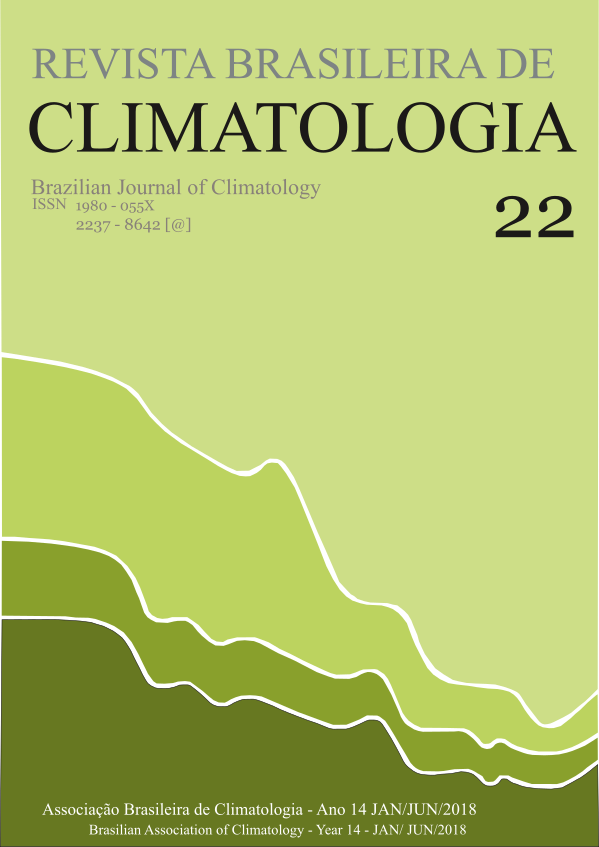MODELLING GROSS PRIMARY PRODUCTION OF TROPICAL FOREST BY REMOTE SENSING
DOI:
https://doi.org/10.5380/abclima.v22i0.50460Palavras-chave:
net CO2 exchange, transitional tropical forest, light use efficiency, MODISResumo
The application of remote sensing has provided an opportunity to improve the estimation of gross primary production (GPP) on a regional scale. Several models to estimate GPP of homogeneous ecosystems, such as agricultural areas, entirely based on remote sensing data exist, but models to describe more heterogeneous areas are less common. Thus, the aim of the study was to evaluate the GPP estimated by different remote sensing methods in an Amazon-Cerrado transition forest in Mato Grosso, using MODIS spectral data. Two models, known as the temperature and greenness model (TG) and the vegetation index (VI) model, were used to estimate seasonal and interannual variations in GPP. Our results indicated that the TG and VI models were incapable of reproducing the seasonal variation in GPP, because the lack of correlation between vegetation indices and the GPP measured from tower-based eddy covariance (GPPEC). Furthermore, the time series of the enhanced vegetation index (EVI) was delayed by 2 months with GPPEC. The results presented in this paper highlight some of the complexities in validating satellite products. Further study over a variety of Brazilian forests is needed to quantitatively assess the TG and VI and other methods to improve their accuracy.Downloads
Downloads
Publicado
Como Citar
Edição
Seção
Licença
A aprovação dos artigos implica a aceitação imediata e sem ônus de que a Revista Brasileira de Climatologia terá exclusividade na primeira publicação do artigo. Os autores continuarão, não obstante, a deter os direitos autorais. Os autores autorizam também que seus artigos sejam disponibilizados em todos os indexadores aos quais a revista está vinculada.
Os autores mantém seus direitos de publicação sem restrições
A Comissão Editorial não se responsabiliza pelos conceitos ou afirmações expressos nos trabalhos publicados, que são de inteira responsabilidade dos autores.
A Revista Brasileira de Climatologia oferece acesso livre imediato ao seu conteúdo, seguindo o entendimento de que disponibilizar gratuitamente o conhecimento científico ao público proporciona maior democratização do conhecimento e tende a produzir maior impacto dos artigos publicados. Os artigos publicados na revista são disponibilizados segundo a Licença Creative Commons CC-BY-NC 4.0 (https://creativecommons.org/licenses/by-nc/4.0/). Segundo essa licença é permitido acessar, distribuir e reutilizar os artigos para fins não comerciais desde que citados os autores e a fonte. Ao submeter artigos à Revista Brasileira de Climatologia, os autores concordam em tornar seus textos legalmente disponíveis segundo essa licença




